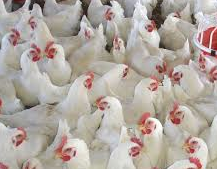If Russia does not start working on its own breeding base, then every spring and autumn Russian poultry farmers will face a problem when, due to outbreaks of avian flu in the EU countries, they are closed for the supply of live birds and hatching eggs, says Galina Bobyleva, Director General of the Russian Poultry Union.
"Already now Russia has made a breakthrough in breeding its own poultry breeds. In particular, the Smena Selection&Genetic Center, as part of the subprogramme for the creation of its own competitive meat chickens, has bred a four-line cross with a high genetic potential for productive qualities. The productivity of domestic chickens was not lower than foreign ones", said Galina Bobyleva. She added that already five Russian poultry farms have become interested in breeding chickens of the domestic breed.
It is expected that within five years (by 2025) the share of domestic chickens in production will reach 15%. It is necessary to develop our own breeding base, taking into account the situation with exchange rates, the expert noted. After all, imported breeding material leads to an increase in the cost of production. Manufacturers have to either sacrifice part of their margins, reducing their own profitability, or to raise prices, which is not always possible in a falling market.
According to Galina Bobyleva, now the share of direct imports in the structure of the cost of poultry products is 30% - it is mainly hatching eggs (about 23%), feed and veterinary preparations. The ban on the import of poultry products from some European countries due to outbreaks of avian influenza once again highlighted the obvious problem of the need to reduce the dependence of the Russian poultry industry on foreign supplies, Galina Bobyleva noted. And if the situation with poultry meat is more or less good (over the past eight years, the country managed to reduce imports by 2.5 times to 227,000 tons by the end of 2019), as for hatching eggs, Russia is still very dependent on foreign supplies.
"We are very dependent on imports for hatching eggs, to a lesser extent on egg breeds, to a greater extent on meat breeds. When foreign countries are closed, there is a problem with the stocking of domestic companies," said Galina Bobyleva. According to her, there are risks of a reduction in production volumes - several Russian companies have not received hatching eggs of both egg and meat breeds this fall. Recall that from November 3 to December 2, the Federal Service for Veterinary and Phytosanitary Surveillance, in order to prevent the introduction of the avian flu, banned the supply of poultry products, including hatching eggs, from several European countries. Restrictions apply to several regions of Germany, partly to Sweden and Croatia, as well as Belgium, Poland, Great Britain, Northern Ireland, Denmark and the Netherlands. "But let's hope that supplies will resume when the regionalization for this disease is recognized," added Galina Bobyleva. She noted that now the resumption of supplies is being decided, but it is necessary to develop its own breeding base in Russia.
Source: meatbranch.com.


